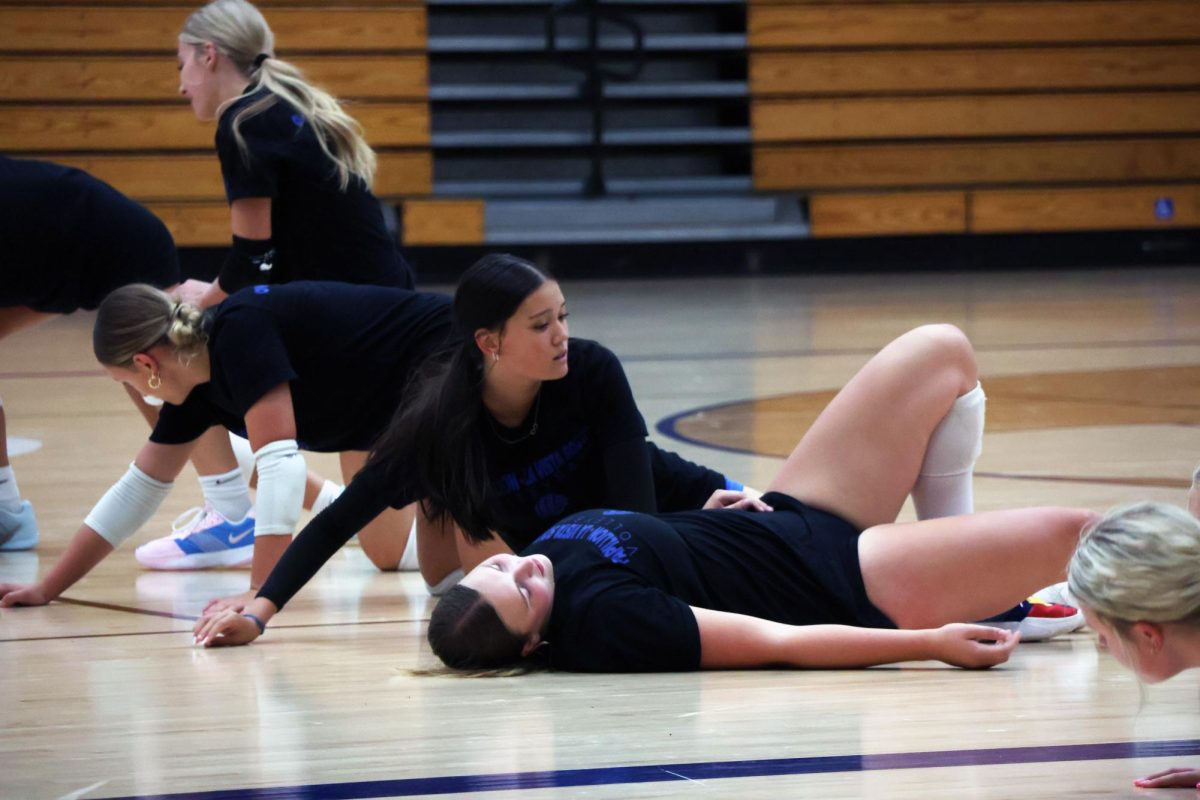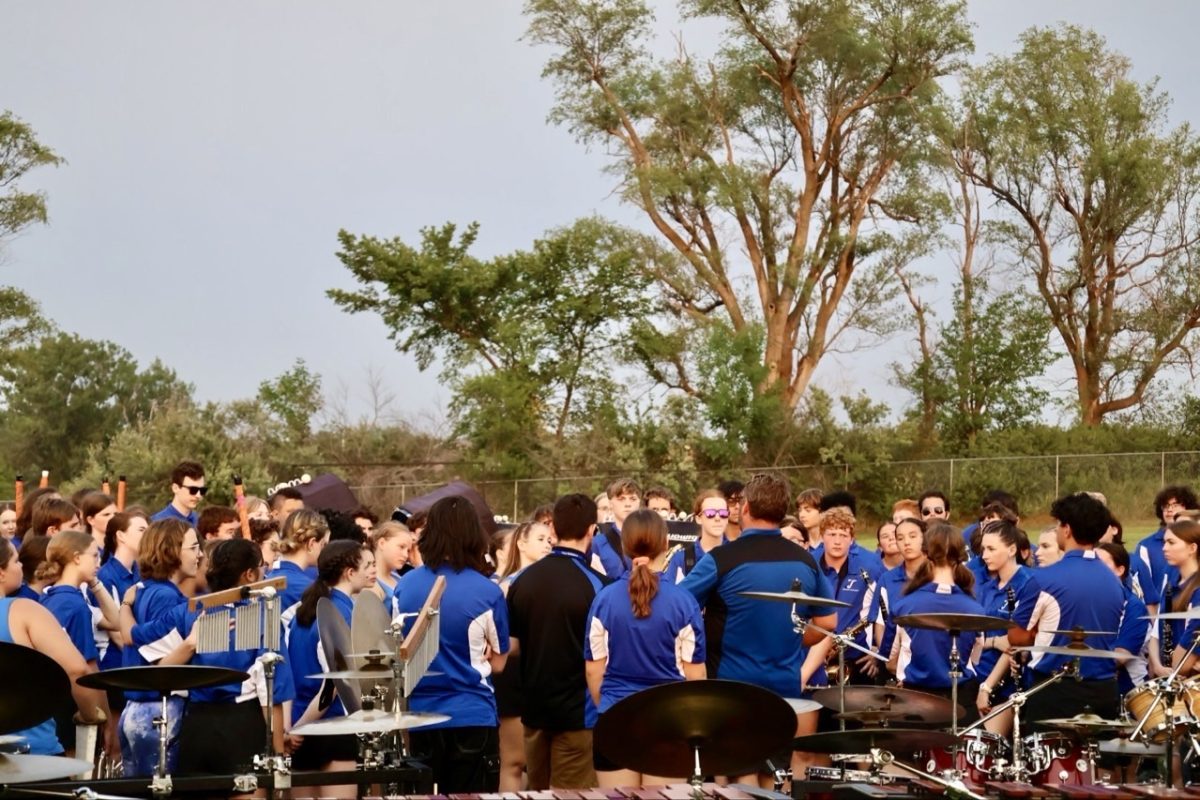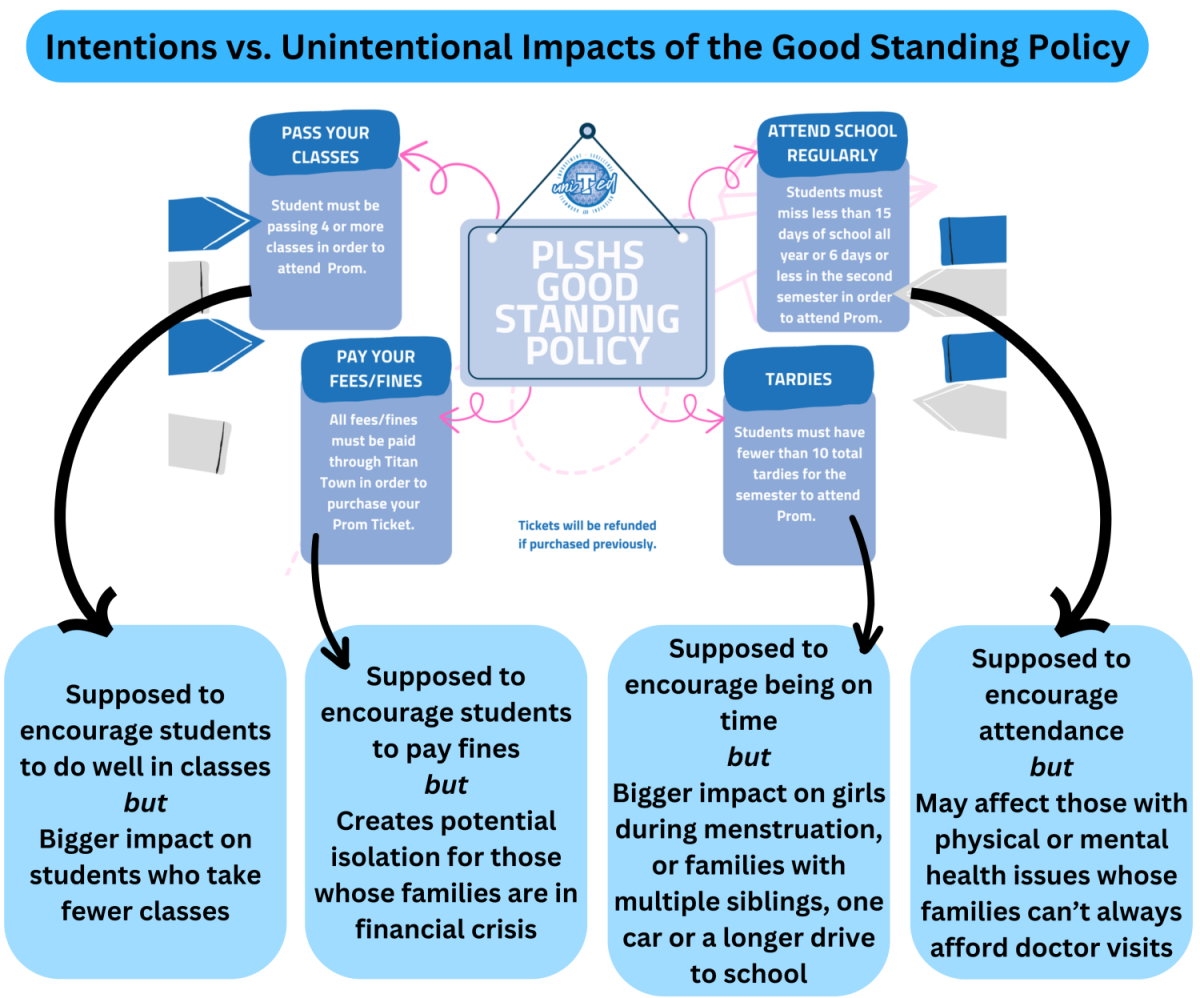The Good Standing Policy was introduced this school year as a list of qualifications that students must meet in order to be permitted to attend Homecoming and Prom. While the policy’s intention was to encourage students to keep their grades up and increase attendance, it may have inadvertently caused more harm than good for some of the more vulnerable members of the student body such as those in poverty.
Around 120 students didn’t meet the requirements to go to Prom this year, including 67 seniors, myself included. This means that almost 15% of the senior class was barred from attending initially. If you were one of those students, you had to fill out an appeal form and set up a meeting with principals Jeff Spilker or Brent Gehring to explain why you didn’t meet the requirements and why you should be allowed to attend regardless.
As a senior, I had to go through Mr. Spilker. So I filled out the form and got a response after 10 days and some prompting.
The reason I was disqualified from attending Prom was because of absences. I’d missed over six days of school in the second semester, largely because I’d contracted COVID and was out sick for an entire week. After explaining the situation to Mr. Spilker, he said I’d be allowed to go as long as I was able to provide a doctor’s note proving I had been sick all those days. This is where the issues in the Good Standing Policy begin to appear.
Because of financial limitations, I never go to the doctor for anything unless it’s required for school or it’s a serious issue. At the same time, as a Health Academy student who had two family members test positive for COVID and had the same symptoms as them, I could not in good conscience attend school and potentially expose vulnerable patients in the hospital where I attend classes every day. At that time, the CDC’s recommendation was to isolate for five days after a positive COVID test, and I was actively sick for most of that time.
That practice prevented me from getting my doctor’s note confirming my story, seeing as I avoid going to the doctor for financial reasons. The rigidness of the policy specifically puts poorer students at odds because they frequently won’t have the means to defend themselves. Someone like me who got sick but couldn’t afford the doctor could be forced to choose between attending classes while ill and putting their classmates at risk or staying home and having to miss their senior Prom because of attendance.
Students with multiple siblings but a family who can only afford one car might be barred from attending because of early morning school dropoff tardies that were entirely out of their control.
In the end, an email from my mother swayed Mr. Spilker to allow me to purchase a Prom ticket on the day sales ended. Having sent my first message trying to figure this out on March 18 and having it resolved on April 9 meant the whole process took almost a month. I was lucky enough to have my mother supporting so I was able to attend, but most of the students who sent in an appeal weren’t, with only four of the 17 who sent in appeals being allowed to attend.
While the Good Standing Policy was made with the best of intentions, it inadvertently ended up specifically targeting some of the more vulnerable members of the student body. The rigidness of the policy and the long and difficult appeal process ended up barring a lot of people from attending Prom without taking the time to understand the specific circumstances that caused them to miss class or be late. While attendance and good grades are important, stopping students from attending memorable events isn’t the way to encourage them.


![Pictured above is a structure that displays the names of Nebraska Vietnam veterans in order to “honor [their] courage, sacrifice and devotion to duty and country.”](https://plsouthsidescroll.com/wp-content/uploads/2025/10/Trey_092625_0014-e1760030641144-1200x490.jpg)
























